This article was co-authored by Pradeep Adatrow, DDS, MS. Dr. Pradeep Adatrow is the only board certified Dentist, Periodontist, and Prosthodontist in the southern United States. With over 15 years of experience, Dr. Adatrow specializes in dental implants, TMJ treatments, periodontal plastic surgery, surgical and non-surgical periodontics, bone regeneration, laser treatments, and soft tissue and gum graft procedures. He received a BS in Epidemiology and Biostatistics from the University of Alabama and earned his Doctor of Dental Surgery (DDS) degree from the University of Tennessee College of Dentistry. Dr. Adatrow then completed a three-year postgraduate program in periodontics and implantology at Indiana University and went on to complete another three-year postdoctoral program in advanced prosthodontics from the University of Tennessee. He also serves as a full-time professor and the Director of Surgical Prosthodontics at the University of Tennessee. Dr. Adatrow received the Dean's Junior Faculty Award and the John Diggs Faculty Award, and he was inducted into the Deans Odontological Society. He is board certified by the American Board of Periodontology and is a Fellow of the prestigious International College of Dentistry – a feat that only 10,000 others worldwide can claim.
This article has been viewed 127,191 times.
"Lockjaw" refers to spasms of the masseter muscles (your jaw muscles) as a result of a tetanus infection.[1] Tetanus is a serious disease and, in all cases, requires professional medical attention. In addition to following the advice from your doctor, here are some strategies to help handle the pain and muscle spasms in your jaw.
Steps
Seeking Medical Attention
-
1Understand what lockjaw is. "Lockjaw" is a colloquial term used to describe spasms of the masseter muscles (the jaw muscles) as a result of being infected with tetanus.[2] Tetanus is a bacterial infection that results in painful muscle spasms; there is no cure, and 10–20% of cases result in death, which is why preventative tetanus vaccination is key.[3]
- Most people now receive the tetanus vaccine in their youth, which makes this disease quite rare.[4]
- The tetanus vaccine lasts for 10 years. After that point, a booster vaccine is needed.
- Tetanus isn't passed from person to person. It's contracted via a wound, usually a deep wound that allows bacteria to get into the body.[5]
- Symptoms of tetanus usually begin to appear about a week after being infected.
- In addition to jaw spasms, other symptoms of tetanus can include headache, fever, sweating, restlessness, trouble swallowing, irritability, and strange-looking facial expressions.[6]
-
2Seek rapid medical attention. Ideally, you will have seen a doctor right when you were first potentially exposed to the tetanus bacteria. Regardless, you need to be treated in a hospital setting right away if lockjaw develops. If you have not been immunized within the past 10 years, they will inject you with tetanus immune globulin followed by the vaccine.[7]
- 3,000 to 6,000 units of tetanus immune globulin drug is administered via intramuscular shots.
- This injectable solution contains Immunoglobulin G, an antibody that helps your body get rid of all the toxins produced by the tetanus causing bacteria.
- Administration of this treatment will boost your immunity, helping you fight the infection.
- A local anesthetic can be added to the injection to lower the amount of pain. Administration of this drug must always be done under medical supervision.
- The doctors will also clean your wound thoroughly, and remove any foreign material that may be present in the wound, to minimize the chances of a tetanus infection.[8]
- Note that if you are already presenting with symptoms of "lockjaw," this means that you are late in seeking treatment.
- However, doctors will give you the injection anyway even though it is preferable to have gotten it earlier since it can still be somewhat effective later on.
Advertisement -
3Try medications. If you have a tetanus infection, home treatment is not an option, and medications will be administered in the hospital. Muscle relaxers, such as Carisoprodol, and sedatives are commonly used to help relieve muscle spasms in your jaw and elsewhere on your body.[9]
- Neuromuscular blocking agents are also useful in treating spasms. These medications include pancuronium, vecuronium, and baclofen.[10]
- Your breathing and heartbeat can be affected by muscle spasms as well as by the use of sedatives, so you may need to use a ventilator while in the hospital.
- In severe causes, you may be taken to the ICU.
Using Home Remedies for Symptom Management
-
1Try massage. Massaging the masseter muscles and jaw joints will help ease the pain. Apply light pressure and massage your jaw muscles to relieve pain.
- Use your index finger and middle finger to rub your cheeks to find the tender point on the jaw.
- Once you pinpoint the location, massage with your fingers in a circular motion for 30 seconds.
- Be careful not to press too hard. It should be just slight optimal pressure such that it causes no pain and gives relaxation.
-
2Use heat. Heat is great for relaxing your muscles, and will help you get rid of muscle spasms by increasing the local blood flow. Use a hot water bottle or heating pad by placing it on the desired area. Hold the heat source in the affected area for about 30 minutes.
- Be careful not to apply a high heat level, as you may cause burns.
-
3Cool the area. Using ice packs in conjunction with heat is a great remedy. Lower temperature will help ease inflammation, thus relieving pain. Apply an ice pack for about 5-10 minutes after the heat treatment, and then switch between the two.
-
4Be aware that these at-home strategies do not take the place of professional medical treatment. They can be used to help with the pain of muscle spasms in your jaw that result from tetanus, but receiving tetanus immune globulin and professional medical support is key as well.
Expert Q&A
Did you know you can get expert answers for this article?
Unlock expert answers by supporting wikiHow
-
QuestionWhy is my jaw locking up?
 Pradeep Adatrow, DDS, MSDr. Pradeep Adatrow is the only board certified Dentist, Periodontist, and Prosthodontist in the southern United States. With over 15 years of experience, Dr. Adatrow specializes in dental implants, TMJ treatments, periodontal plastic surgery, surgical and non-surgical periodontics, bone regeneration, laser treatments, and soft tissue and gum graft procedures. He received a BS in Epidemiology and Biostatistics from the University of Alabama and earned his Doctor of Dental Surgery (DDS) degree from the University of Tennessee College of Dentistry. Dr. Adatrow then completed a three-year postgraduate program in periodontics and implantology at Indiana University and went on to complete another three-year postdoctoral program in advanced prosthodontics from the University of Tennessee. He also serves as a full-time professor and the Director of Surgical Prosthodontics at the University of Tennessee. Dr. Adatrow received the Dean's Junior Faculty Award and the John Diggs Faculty Award, and he was inducted into the Deans Odontological Society. He is board certified by the American Board of Periodontology and is a Fellow of the prestigious International College of Dentistry – a feat that only 10,000 others worldwide can claim.
Pradeep Adatrow, DDS, MSDr. Pradeep Adatrow is the only board certified Dentist, Periodontist, and Prosthodontist in the southern United States. With over 15 years of experience, Dr. Adatrow specializes in dental implants, TMJ treatments, periodontal plastic surgery, surgical and non-surgical periodontics, bone regeneration, laser treatments, and soft tissue and gum graft procedures. He received a BS in Epidemiology and Biostatistics from the University of Alabama and earned his Doctor of Dental Surgery (DDS) degree from the University of Tennessee College of Dentistry. Dr. Adatrow then completed a three-year postgraduate program in periodontics and implantology at Indiana University and went on to complete another three-year postdoctoral program in advanced prosthodontics from the University of Tennessee. He also serves as a full-time professor and the Director of Surgical Prosthodontics at the University of Tennessee. Dr. Adatrow received the Dean's Junior Faculty Award and the John Diggs Faculty Award, and he was inducted into the Deans Odontological Society. He is board certified by the American Board of Periodontology and is a Fellow of the prestigious International College of Dentistry – a feat that only 10,000 others worldwide can claim.
Board Certified Dentist & Oral Surgeon
-
QuestionWhat is lockjaw?
 Pradeep Adatrow, DDS, MSDr. Pradeep Adatrow is the only board certified Dentist, Periodontist, and Prosthodontist in the southern United States. With over 15 years of experience, Dr. Adatrow specializes in dental implants, TMJ treatments, periodontal plastic surgery, surgical and non-surgical periodontics, bone regeneration, laser treatments, and soft tissue and gum graft procedures. He received a BS in Epidemiology and Biostatistics from the University of Alabama and earned his Doctor of Dental Surgery (DDS) degree from the University of Tennessee College of Dentistry. Dr. Adatrow then completed a three-year postgraduate program in periodontics and implantology at Indiana University and went on to complete another three-year postdoctoral program in advanced prosthodontics from the University of Tennessee. He also serves as a full-time professor and the Director of Surgical Prosthodontics at the University of Tennessee. Dr. Adatrow received the Dean's Junior Faculty Award and the John Diggs Faculty Award, and he was inducted into the Deans Odontological Society. He is board certified by the American Board of Periodontology and is a Fellow of the prestigious International College of Dentistry – a feat that only 10,000 others worldwide can claim.
Pradeep Adatrow, DDS, MSDr. Pradeep Adatrow is the only board certified Dentist, Periodontist, and Prosthodontist in the southern United States. With over 15 years of experience, Dr. Adatrow specializes in dental implants, TMJ treatments, periodontal plastic surgery, surgical and non-surgical periodontics, bone regeneration, laser treatments, and soft tissue and gum graft procedures. He received a BS in Epidemiology and Biostatistics from the University of Alabama and earned his Doctor of Dental Surgery (DDS) degree from the University of Tennessee College of Dentistry. Dr. Adatrow then completed a three-year postgraduate program in periodontics and implantology at Indiana University and went on to complete another three-year postdoctoral program in advanced prosthodontics from the University of Tennessee. He also serves as a full-time professor and the Director of Surgical Prosthodontics at the University of Tennessee. Dr. Adatrow received the Dean's Junior Faculty Award and the John Diggs Faculty Award, and he was inducted into the Deans Odontological Society. He is board certified by the American Board of Periodontology and is a Fellow of the prestigious International College of Dentistry – a feat that only 10,000 others worldwide can claim.
Board Certified Dentist & Oral Surgeon
References
- ↑ Pradeep Adatrow, DDS, MS. Board Certified Dentist & Oral Surgeon. Expert Interview. 5 November 2020.
- ↑ http://www.uptodate.com/contents/tetanus
- ↑ https://www.cdc.gov/tetanus/index.html
- ↑ http://www.uptodate.com/contents/tetanus
- ↑ http://www.uptodate.com/contents/tetanus
- ↑ https://emedicine.medscape.com/article/229594-clinical
- ↑ Pradeep Adatrow, DDS, MS. Board Certified Dentist & Oral Surgeon. Expert Interview. 5 November 2020.
- ↑ https://www.cdc.gov/disasters/woundcare.html
- ↑ Pradeep Adatrow, DDS, MS. Board Certified Dentist & Oral Surgeon. Expert Interview. 5 November 2020.
- ↑ Engrand N, Guerot E, Rouamba A, Vilain G. The efficacy of intrathecal baclofen in severe tetanus. Anesthesiology 1999; 90:1773.


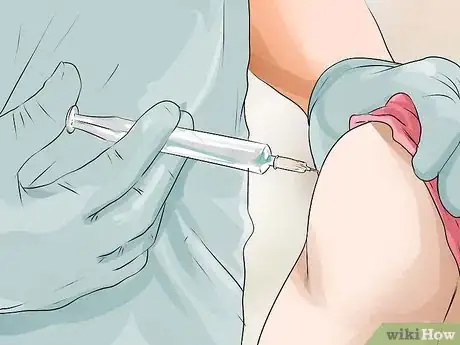

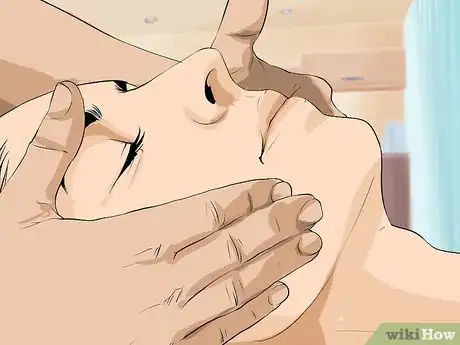

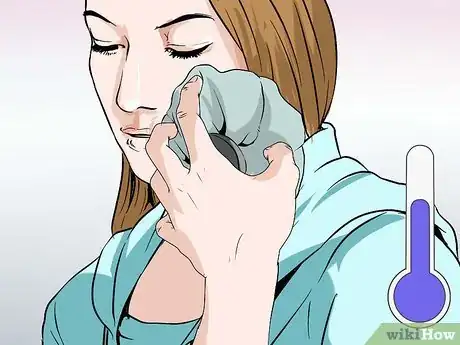
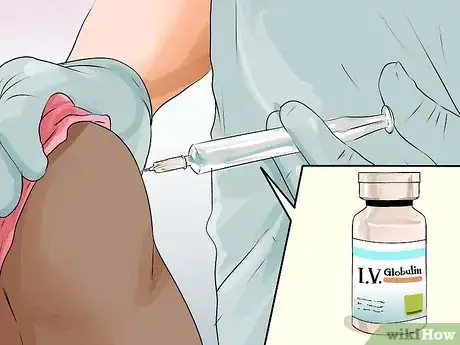
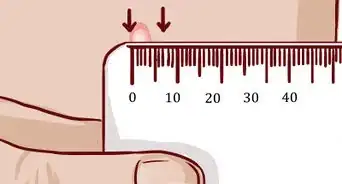
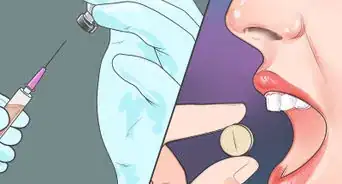

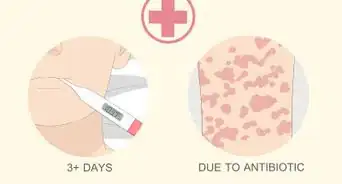






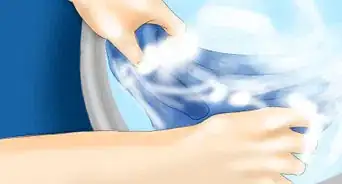
-Step-11.webp)

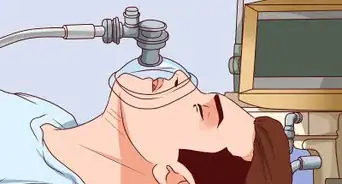







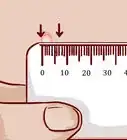
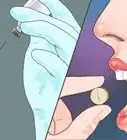

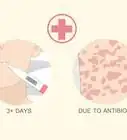



































Medical Disclaimer
The content of this article is not intended to be a substitute for professional medical advice, examination, diagnosis, or treatment. You should always contact your doctor or other qualified healthcare professional before starting, changing, or stopping any kind of health treatment.
Read More...